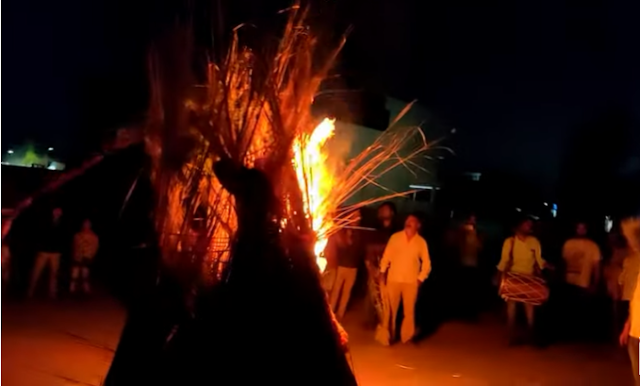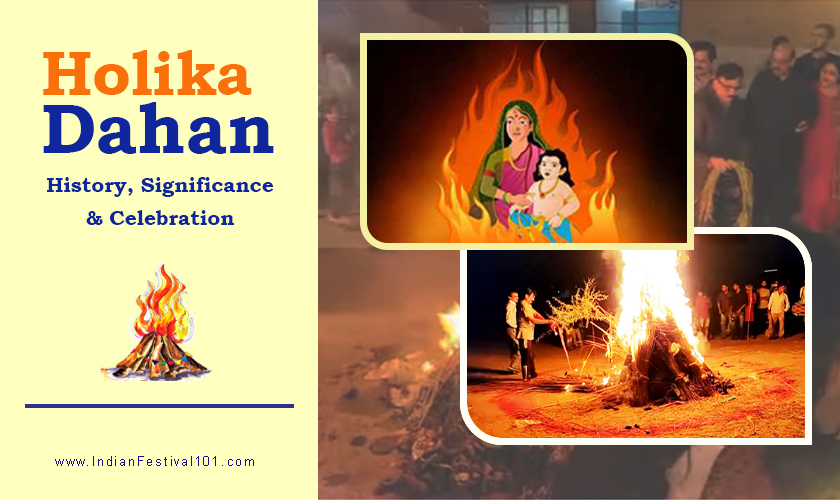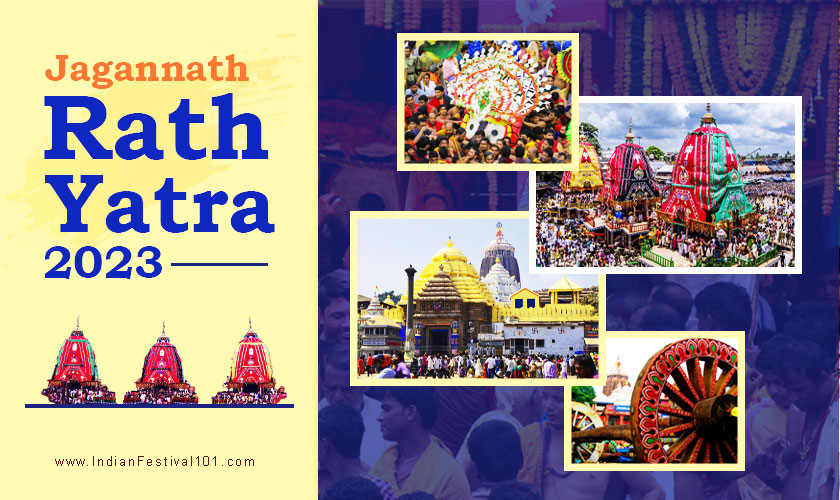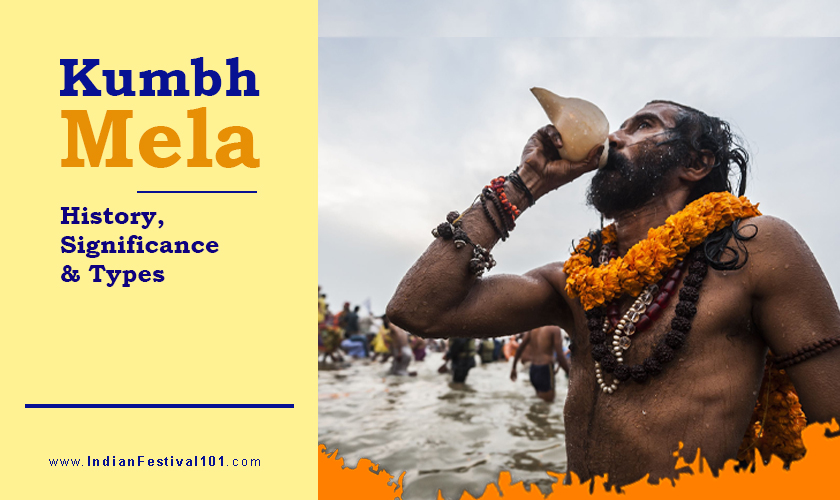Holika Dahan is a traditional Hindu festival celebrated on the full moon day(Purnima) in the Hindu month of Phalguna (in February/March). Since the festival is celebrated on the eve of Holi thus also known as Chhoti Holi.
Meaning of Holika Dahan
Holika Dahan means the lightning of bonfires. the name is connected to the legend associated with the festival. Holika is the name of the sister of Hiranyakashyap. Dahan means burning. Holika Dahan means burning of Holika. The incident is associated with a story associated with Hiranyakashyap, Holika, and Prahlad.
The Holika Dahan celebration is just like a campfire as we do during our picnic tour. But there is a legend associated with this Indian Hindu festival celebration. We will know here in detail about Holika Dahan’s preparation, significance, history, and celebration. The Holi festival celebration starts with Holika Dahan when a great bonfire is lit to celebrate the victory of good over evil.
 |
| Holika Dahan Celebration |
Story of Holika Dahan
The festival is associated with the Hindu God Vishnu and his devotee Prahlad. There is a traditional story behind the festival. A tradition of Holika Dahan is actually the lighting of bonfires. The ritual is the symbol of victory of good over evil and has its root in the demon king Hiranyakashyap who wished to end his son Prahlad’s life with the help of his sister Holika. Holika has been blessed by the god Vishnu with a piece of cloth that can protect her from Fire.
Hiranyakasyap planned and force his sister Holika to burn Prahlad with his sister’s help. Holika sits on fire having Prahlad in her lap and wrapping that special cloth around her. From the shake of God that cloth protected Prahlad from fire and Holika was burnt. This was the Story Behind Holika Dahan.
Significance of Holika Dahan
Do you know the significance of Holika Dahan? When Holika is burnt, the temperature increases. Following the tradition people perform Parikrama around the fire the heat from the fire kills the bacteria in the body thus cleansing it.
 |
| Significance of Holika Dahan |
Another scientific reason for celebrating the Holi festival is pertaining to the tradition of Holika Dahan. The mutation period of winter and spring helps in the growth of bacteria in the atmosphere as well as in the body.
Holi comes at a time when people feel lazy and sleepy. This is natural for the body to experience some tiredness due to a change of weather from cold to heat. To counteract this tiredness of the body people sign loudly and even speak loudly. This helps re-energize the human body and recover them from laziness.
Some of the facts say that the use of color and Abeer on the body helps to strengthen the ions of the body and add health and beauty to it.
Holika Dahan Prepration
Hindu festivals and culture are deeply connected to our mother nature. In every festival celebration, we connect to nature and offer prayers in different forms. Preparation for the Holika Dahan festival starts almost one month before the actual day. A pile of tree branches, bushes cow dung, wood, and dry leaves collected at the center of the road. throughout the month people make this pile and add more leaves. Women do Preparation for the Holi Festival by cleaning their homes and surroundings. Children are much excited to celebrate the Holi festival by collecting coins and purchasing Pichkaari and Gulal on the day of the Holi festival.
Holika Dahan Celebration
Holika Dahan is widely celebrated in north India therefore it is a north Indian festival. The festival is celebrated at the night and is closely attached to the Holi festival. The Holika Dahan places are pointed out. Pieces of bushes, wood, cow dung, and many more burning materials are collected in that place. Young are more excited to collect these materials and plan to celebrate the Holi festival in a more exciting way. Farmers show their excitement in their fields and crops.
During the Holika Dahan celebration, people throw Ubtan into the fire, which is a type of paste. It is believed to keep people disease-free for the year. Then the Holika ash is used to mark a tilak on the forehead, and then of course prepare for the grand celebrations of the next day.





